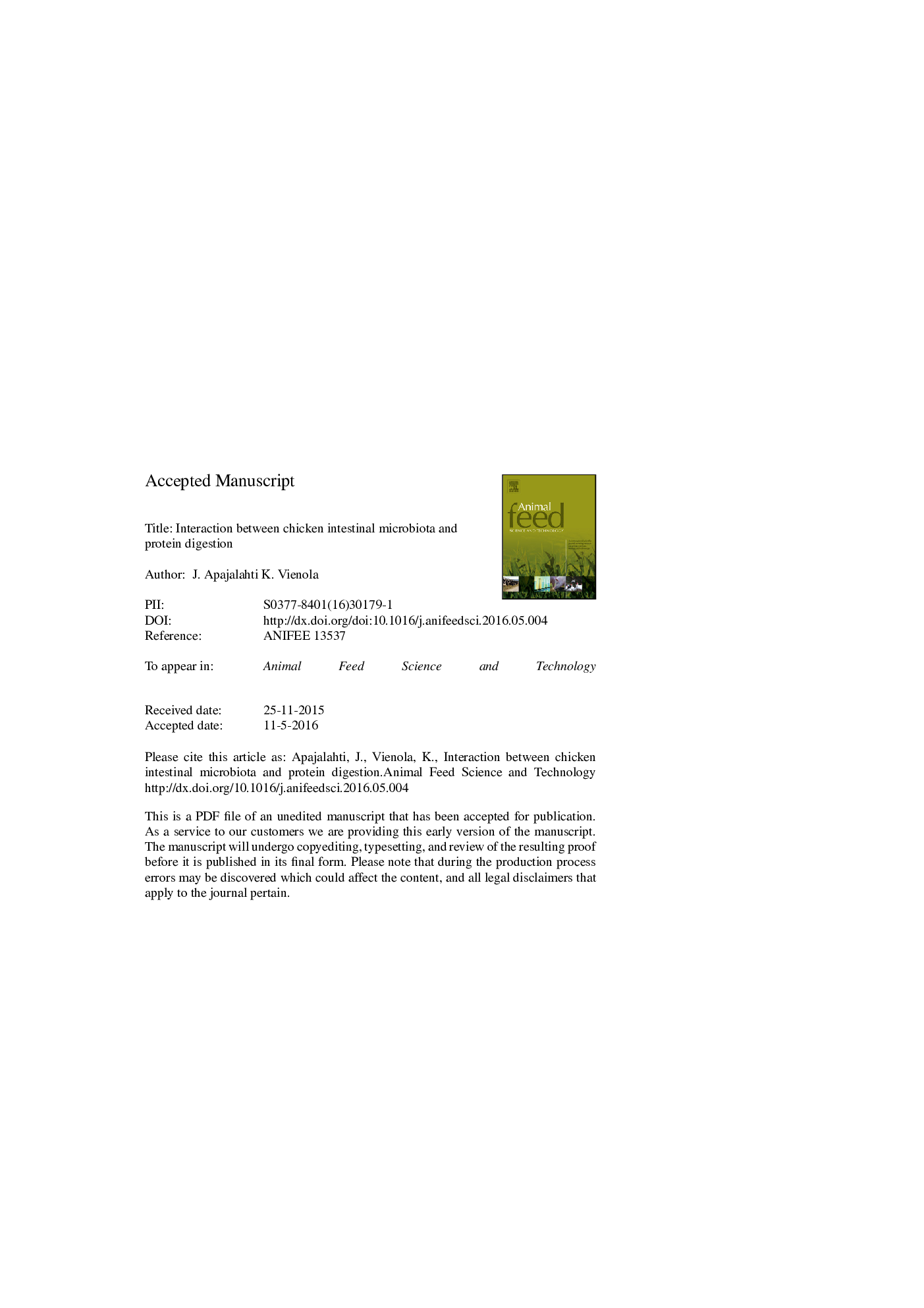| Article ID | Journal | Published Year | Pages | File Type |
|---|---|---|---|---|
| 5538936 | Animal Feed Science and Technology | 2016 | 21 Pages |
Abstract
Ileal bypass protein is subject to fermentation by putrefactive bacteria in the caecum. Putrefaction produces many harmful and toxic compounds, which in high concentrations may have adverse effects on chicken growth and performance. The protein fermentation products include amines, indoles, phenols, cresol and ammonia, which can all negatively affect host or cell health. All actions to reduce the amount of ileal bypass protein potentially also reduce production of toxic protein fermentation metabolites in the caecum. Enzymes which facilitate protein digestion in the upper intestine and soluble carbohydrates resistant to ileal digestion both reduce caecal putrefaction. In the distal intestine, saccharolytic fermentation is preferred and putrefaction accelerates only when utilisable carbohydrates are depleted. Soluble oligo- and polysaccharides are produced in situ by non-starch polysaccharide degrading enzymes and can also be added directly to the diet as health-promoting prebiotics.
Keywords
Related Topics
Life Sciences
Agricultural and Biological Sciences
Animal Science and Zoology
Authors
J. Apajalahti, K. Vienola,
